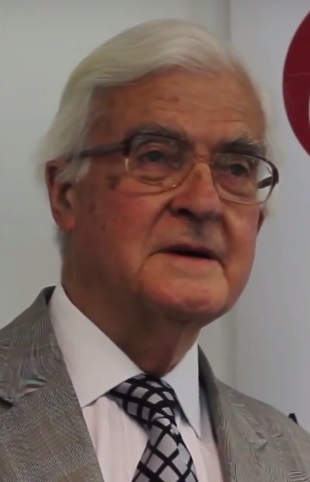15 Ways to Reimagine Education
4. Eradicate Standardised Tests Which Put Pupils (and Teachers) Under Unnecessary Pressure.

– Albert Einstein
Standardised tests, or high-stakes tests such as GCSEs and SATs are used to make judgements about individual students and schools.
English children and young people are among the most tested in the world.
In addition to tests and exams in our secondary schools, within two years, standardised assessments will be taking place in Reception (Baseline tests), Year 1 (phonics), Year 2 (Key Stage 1 SATs), Year 4 (times tables) and, Year 6 (Key Stage 2 SATs).
Primary School Tests are Damaging

A review, led by Professor Robin Alexander at the University of Cambridge in 2006, was highly critical of the way tests are carried out in UK primary schools and the damage they cause to both children, teachers and the schools as a whole.
The Cambridge Primary Review concluded that children’s experience of primary school is completely distorted by the process of targets, testing, performance tables, national strategies and inspection.
It argued that a total rethink of assessment was needed. You can read more about the review on Professor Robin Alexander’s website:
Over a decade later things haven’t moved on. Our education system still relies on continuous testing, grading and ranking.
Finland’s system on the other hand acknowledges the damage that forced testing causes. Praised by many for its good education system, the Finnish government forbids testing of children younger than eight, and those under sixteen can’t be tested unless the students themselves give consent. Finland still manages to top the international PISA rankings which proves that testing is not essential for academic success.
Exams More Valued Than Wellbeing

A report by The Health Foundation recently found that 80% of teachers feel that the focus on exams has become disproportionate to the focus on the wellbeing of their pupils.
Along with The Children and Young People’s Mental Health Coalition, and the Centre for Mental Health, The Health Foundation is now calling on the Government to review the impact of the UK exam systems on young people’s wellbeing and mental health.
They want education inspectorates, including Ofsted, to look beyond attainment and overall performance, and instead assess schools on their efforts to promote “a whole-school approach”.
You can read the full report entitled, “A Healthy Foundation for the Future” in our Articles and Research section.
School Leaders Concern about SATs
A survey by YouGov (2019) found that 93% of headteachers, deputy heads and primary school leaders believe that the Government should review the current system of standardised assessment. They believe that policy is decided without sufficient consultation with heads or other experts, while 87% think that politicians don’t listen to the views of headteachers when making education policy.
Regarding Year 6 SATs – the most high-profile pressurised tests currently taken by primary-age children – 98% of respondents felt that teachers are being placed under unnecessary pressure, while 94% felt that pupils are under unnecessary pressure.
96% of those surveyed have concerns about the effects of the tests on the wellbeing of pupils.
93% said they had been contacted by parents raising concerns about their children in the run-up to KS2 SATs. 83% said that these children were feeling stressed or anxious because of the tests.
You can read more about these findings on the More Than a Score website.
More Than a Score

More Than a Score is a campaign which aims to change the way children are assessed and schools are judged.
It presents a great deal of evidence demonstrating that the current regime is damaging to children’s wellbeing, demoralising for teachers and provides little real information about the performance of schools.
Play Not Tests
A similar campaign in Scotland is being led by Upstart who are calling for an end to the P1 literacy and numeracy tests for five year olds. They have produced this short animation explaining why five-year-old children need ‘play not tests’ and are urging parents to opt their children out of the tests.
School Leaders’ Concern about GCSEs

Rose Hardy, head teacher at leading independent school, Haberdashers’ Aske’s School for Girls, said there is a growing frustration among school leaders about the public exams for 16-year-olds.
She said that Year 10 students get put on the “terrible treadmill” of GCSEs and are “actually having a very tough time”. Speaking at the Girls’ Schools Association annual conference in Bristol in 2019, she stated:
“I think many heads would say that in thirty years time, maybe sooner, we’ll look back and say what we were doing now with young people is the equivalent of what the Victorians did with building their school rooms with windows high up so they couldn’t look out, and putting people in dunce caps.”
Rose Hardy, Haberdashers’ Aske’s School for Girls
Mrs Hardy is not alone in believing that GCSEs are not fit for purpose. Jenny Brown, head of City of London School for Girls, says:

“Frankly if we were being really brave, we would all just say ‘right that’s it, no more GCSEs, farewell’. They are outmoded, uninteresting and draining frankly, I personally don’t think they deserve the space they get.”
Jenny Brown, City of London School for Girls
In fact, Lord Kenneth Baker, the former education secretary who first introduced GCSEs in the 1980s has said that they are now redundant and is calling for them to be scrapped.

Speaking at an Edge Foundation event in 2019, Lord Baker said:
“Now with the [school] leaving age going on to 18, you don’t need to test youngsters at 16. I think therefore GCSEs should be quietly put to sleep.”
Lord Baker is now involved in the Rethinking Assessment campaign which was launched in 2020.
An illuminating thread was posted by Dr Naomi Fisher on Twitter in 2022 which made it crystal clear just how unethical the exam system is:
“It is not possible for everyone to do well in exams. GCSEs are graded by taking all the scores and dividing them up. Top scorers get the best grades, bottom scorers get the worst. No matter how high or low those scores are. It’s a ranking system…
Young people mostly don’t know this. Their parents often don’t know this. It’s rarely acknowledged that our exam system means it is impossible for everyone to ‘do well’. We award opportunities to those who are seen as ‘the best’ & pretend that this could be the case for all.”
Dr Naomi Fisher
You can follow Dr Fisher on Twitter at:
Dr James Mannion, author and founder of Rethinking Education has also written about this in his blog entitled, “Is everyone OK with fact that we force 30% of children to fail their GCSEs?”. In this post he argues that compulsory GCSEs for all, which means enforced failure for some, is profoundly unethical. He also outline an alternative model for secondary school assessments.
Additionally, the Association of School and College Leaders (ASCL) launched an independent Commission of Inquiry in October 2018 to look into how to improve the prospects of what they have called ‘the forgotten third.’ The Commission’s final report was published in September 2019 and can be read in full here.

Rethinking Assessment
Rethinking Assessment is made up of a group of state, independent and special schools, business people, academics and stakeholders, united in the desire to create something fairer and more fit for purpose. They say:
“There has been a growing belief that there is something wrong with our exam and assessment system.
In particular, people question why we are continuing with the curious anomaly of a school leaving age exam at 16 – GCSEs – when young people can’t leave education until 18.
Much of that anxiety was crystallised in the events of this Summer [during the Covid-19 pandemic] which has left the whole edifice in a state of flux.”
Rethinking Assessment say that headteachers, teachers, students, parents, and businesses are now raising big issues about how we can do things better in the future:
- Many young people find the way our exam system works increasingly stressful and not a true reflection of what they are good at.
- Many employers complain that exams do not provide them with good enough clues as to who they are employing.
- Many headteachers feel that high stakes exams distort priorities and stops them from providing a well rounded education for their pupils.
- Many who are passionate about social mobility believe that any system that dooms a third to fail is a system with little sense of social justice.
Why Standardised Tests are Problematic
- So much emphasis is placed on test results that teachers end up “teaching to the test.”
- Learning “to the test” curtails an individual’s imagination and damages students’ originality of thought.
This is touched upon in Education Reformer, Claire Boonstra’s 2012 TED Talk (see film below). She gives the example of her five year old nephew answering a question from the Dutch Cito test. When presented with the word igloo he had to choose either red for hot or blue for cold. He chose red because it’s warmer inside an igloo than outside, but the test scored his answer as wrong.
For most questions there are several possible answers when you think creatively, but these tests force children to limit their thinking to just one ‘right’ answer.
- Focus on tests narrows the curriculum. English (or rather, spelling, punctuation and grammar) and maths are prioritised to the detriment of other subjects.
- Tests occur in an artificial environment – They are timed, students can’t communicate with others or ask questions, they can’t use references or learning devices, and they can’t get up and move around. This is far removed from the real world they will live in after school.
- Standardised tests create stress. Brain research shows that too much stress is psychologically and physically harmful. School stress is a contributing factor in the rise of mental health issues in children and young people.
- Even if children are unaware that they’re being tested (for example, many children sitting Key Stage One SATs will not be told), teachers will still be preparing them for the tests from Reception onwards. This puts too much pressure on both the children and the teachers.
- Pressurised learning environments reduce a student’s capacity to learn. Anxiety has been proven to inhibit learning.
- What children learn is determined by what they can be tested on. Educationalist and author, Fiona Carnie says:
“We have come to value what we can measure rather than finding ways to measure and assess what we value.
What we are able to assess is not necessarily the kind of knowledge or information that will equip young people to thrive in contemporary society.
Tests do not show whether a child is caring or compassionate, innovative and creative or good at working collaboratively with others. They do not indicate whether a child is confident with a secure sense of self.
Yet these attributes are as important, if not more so in determining the extent to which the child will live a fulfilling and productive life”.
Educationalist and author, Fiona Carnie
Changing Education Paradigms
Sir Ken Robinson, author and international advisor on education, touches on the problem of standardised testing in his talk, Changing Education Paradigms (see film below). He notices the correlation between the rise in standardised testing and the rise in diagnoses of ADHD.
Benefits of a Gradeless System
The TED Talk below is by a teacher in the US who decided to stop using grades in his classes altogether. High school teacher Matt Brisbin compared his 5 year old daughter who had a “fire and excitement for learning” with his 11th and 12th grade students whose “fire had gone out”. He asked himself:
“When does the fire start to go out?…
…When teachers start using grades to represent their students’ progress.”
Matt Brisbin, high school teacher
Brisbin found that grades were the cause of toxic side effects including stress, anxiety, cheating and sleep deprivation, as well as a detrimental effect on learning. His talk mentions social scientists like Dan Pink, Alfie Kohn, Rick Wormeli and John Hattie, who tell us that when we place huge incentives on academic performance, it actually causes students’ brains to narrow their focus:
“The research tells us that putting our students in these high pressure situations actually has a negative effect on their ability to think critically, think in creative ways and solve complex problems.
We’ve developed a system that rewards these good marks so heavily that students have forgotten what school was supposed to be about in the first place… learning.”
Brisbin says that he’s found a better way. Instead of grading his students’ work, he now gives feedback through written notes, all-class lessons and one to one meetings. He also asks students to feed back and reflect on their own work, and collaboratively they decide on a grade. This grade is based on three criteria:
- Student’s growth over time.
- Proficiency to the standard.
- Student’s work ethic.
He’s found that students have become more focused on their progress, he has connected with and built trust with each student individually and has become more of a mentor or coach than a teacher. His ‘gradeless’ system has been so successful that he is now urging all teachers to follow suit:
“I believe what I’ve discovered has the potential to completely change the education system as we know it.”
You can watch Matt Brisbin’s TED Talk here:
Celebrity Support
A number of celebrities are adding their voices to campaigns against standardised testing.
This film by More Than a Score features a number of British famous faces including author Michael Rosen, comedian Zoe Lyons, podcasters the Scummy Mummies, adventurer Levison Wood, musicians Andy Gangadeen (Orbital) and Dunstan Bruce (Chumbawamba) and Caroline Lucas MP. Each one has a personal message for the country’s children that SATs don’t measure all the amazing things they can do:
The picture is similar in the US. Parents, teachers and other professionals are speaking out about the detrimental effects of standardised testing. Actor, film producer and screenwriter, Matt Damon is an ambassador of a US campaign. He gave a speech a few years ago at a Save Our Schools march where he said:

“The things I value most about myself — my imagination, my love of acting, my passion for writing, my love of learning, my curiosity — all come from how I was parented and taught.
And none of these qualities that I’ve just mentioned — none of these qualities that I prize so deeply, that have brought me so much joy, that have brought me so much professional success — none of these qualities that make me who I am … can be tested. I don’t know where I would be today if my teachers’ job security was based on how I performed on some standardized test.”
Actor, film producer and screenwriter, Matt Damon
You can read Matt Damon’s speech in full here: https://www.washingtonpost.com/blogs/answer-sheet/post/matt-damons-clear-headed-speech-to-teachers-rally/2011/07/30/gIQAG9Q6jI_blog.html
Damon’s passion for a fairer education system prompted him to make the film Backpack Full of Cash. This feature-length documentary explores the growing privatisation of public schools in the US (including their policies on standardised test-based accountability systems) and the resulting impact on America’s most vulnerable children.
Campaigning for Change
Visit our Campaigns page to read more about the campaigns, More Than a Score, which aims to change the way children are assessed and schools are judged, and Rethinking Assessment which aims to reshape the exam system.
Further Reading
Beyond Coercive Education, by Peter Hartkamp
Turning Learning Right Side Up, by Russell L Ackoff and Daniel Greenberg
Further Reading on Why Progressive Alternatives are Needed
Please visit 15 Ways to Reimagine Education

